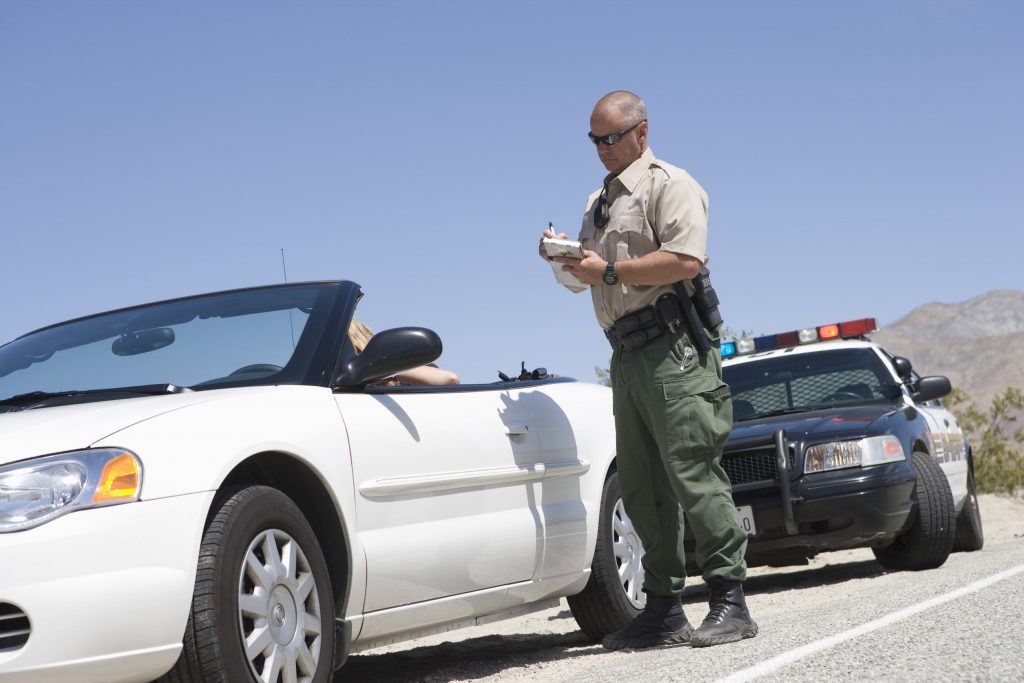
So many times in our 50+ combined years as car accident attorneys in Las Vegas, we’ve had clients question why the negligent driver is disputing a car accident when that driver received a traffic ticket for causing the accident. We’ve had to explain that traffic tickets are generally not admissible in a personal injury lawsuit. A traffic ticket citation is a mere opinion by the investigating police officer. Even if the negligent driver paid the ticket, the ticket itself does not automatically become admissible.
Personal Opinions Of Police Officers Responding To An Accident Are Not Admissible In Court
When a police officer comes to the scene of an accident, they gather evidence and then make a determination as to who caused the accident. That determination is considered an opinion and not a fact. In court, only medical and other expert witnesses can testify as to their opinions. Nev.Rev.Stat. 50.265. Unless a police officer qualifies as an expert, he or she can’t testify as to who he or she believes caused an accident.
Police Officers Responding To A Crash Generally Do Not Perform An Accident Reconstruction
To qualify as an expert in Nevada, the expert must show that they have “scientific, technical or other specialized knowledge” that will help the jury and that they have “special knowledge, skill, experience, training or education” to back up their opinions. See Nev.Rev.Stat. 50.275. Basically, this law means that police officers must show they have specialized training in accident reconstruction to be able to testify as to their opinion on who caused a crash. Also, the law means that the officer must also be able to show that he has sufficient evidence to support his conclusion.
Police officers in Las Vegas usually get some training in accident reconstruction, but not to the same extent as recognized experts in accident reconstruction. Also, the typical Las Vegas police officer responding to a crash do not do the measurements and calculations that experts in accident reconstruction do. For example, experts in accident reconstruction usually measure “crush damage” or the extent of deformity in the vehicles involved in a crash. Police officers typically do not do that. Usually, police officers responding to a car accident take statements from the drivers and passengers involved in the accident and independent witnesses. They then base their determination on those statements. When a crash results in death, Las Vegas police officers may perform a more detailed investigation and calculations. If they do, those officers may qualify as experts in court and testify to their opinions.
The leading Nevada Supreme Court decision on the admissibility of a police officer’s opinion is the personal injury case of Frias v. Valle, 101 Nev. 219, 698 P.2d 875 (1985). In that case, the plaintiff was struck by a taxi cab. In court, the drivers disputed the severity of the accident. During the trial, the court permitted the use of the police officer’s traffic crash report as evidence. After the jury found in favor of the plaintiff, the defendant cab driver appealed to the Nevada Supreme Court, arguing that the crash report should not have been admitted. The Court agreed with the cab driver and explained its decision as follows:
It is the function of the trier of fact to decide who and what caused an accident. The conclusions of Officer Sowder, based upon statements of third parties and a cursory inspection of the scene, did not qualify him to testify as to who was at fault. Evidence of the traffic citation was also inadmissible. By admitting Officer Sowder’s traffic accident report into evidence, the trial court erred.
While an investigating officer’s opinions may not be admissible, their observations of the accident scene are. Officers can testify as to what they saw, what evidence they gathered from the scene, and what the drivers said. The evidence gathered by traffic officers are invaluable to car accident attorneys and experts in accident reconstruction.
Paying A Traffic Ticket Is Generally Not An Admission of Guilt
Nevada law does say that if someone is convicted of a crime, then that person is conclusively deemed to be civilly liable for persons injured by that crime. See Nev.Rev.Stat. 41.133. The Nevada Supreme Court, however, has declared that violations of traffic laws are not considered crimes under this statute. Langon v. Matamoros, 121 Nev. 142, 111 P.3d 1077 (2005). Additionally, the Court has also said that paying a traffic fine is not the same thing as admitting guilt. Mendez v. Brinkerhoff, 105 Nev. 157, 771 P.2d 163 (1989). Most people pay traffic fines because it is easier than fighting it and going to court. The same thing cannot be said about other crimes.
